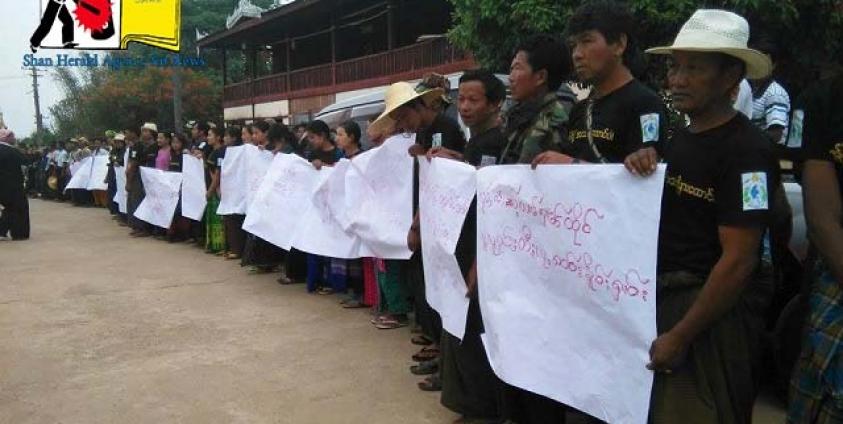Slamming the government for a lack of transparency, local residents boycotted an April 29 meeting to discuss the Tigyit coal-fired power plant.
The southern Shan State locals said only a small number of people were invited to take part in the last minute, closed-door meeting.
“The invitation was sent on the 27th. Thirty-nine villages will be affected by the Tigyit project but only 70 people were invited,” Ko Sein Thaung, a local resident, told the Shan Herald on the evening of April 29.
The controversial power plant was suspended during President U Thein Sein’s administration amid a public backlash. Many fear the new government is trying to restart the project after a test run was carried out in October 2016.
Tigyit was the first coal-fired power station to launch operations in the country. The 60 MW plant started running in 2005 under the management of China National Heavy Machinery Corporation and local companies Eden Group and Shan Yoma Nagar. The facility was suspended in 2014 amid local complaints over air pollution.
Local residents say they developed skin and breathing problems after the coal-fired plant began production. Environmental experts have cautioned that the project could have detrimental affects on the nearby Inle Lake watershed.
In 2016, upgrading work began under Wuxi Huagaung Electric Power Engineering, also of China.
Shan, Danu, PaO, and Palaung people around the Tigyit area have all staged protests against the coal-fired project since April 2016 when the National League for Democracy took over the government offices.
Residents have called on the government and the company operating Tigyit to publicly release the contract details, as well as the environmental impact assessment.
Ko Win Shein Myat, an activist, confirmed that very few of the invitees attended the recent meeting at the Tigyit factory.
“Civil society organizations weren’t invited,” he said.
Translated by Thida Linn
Edited by Laignee Barron







